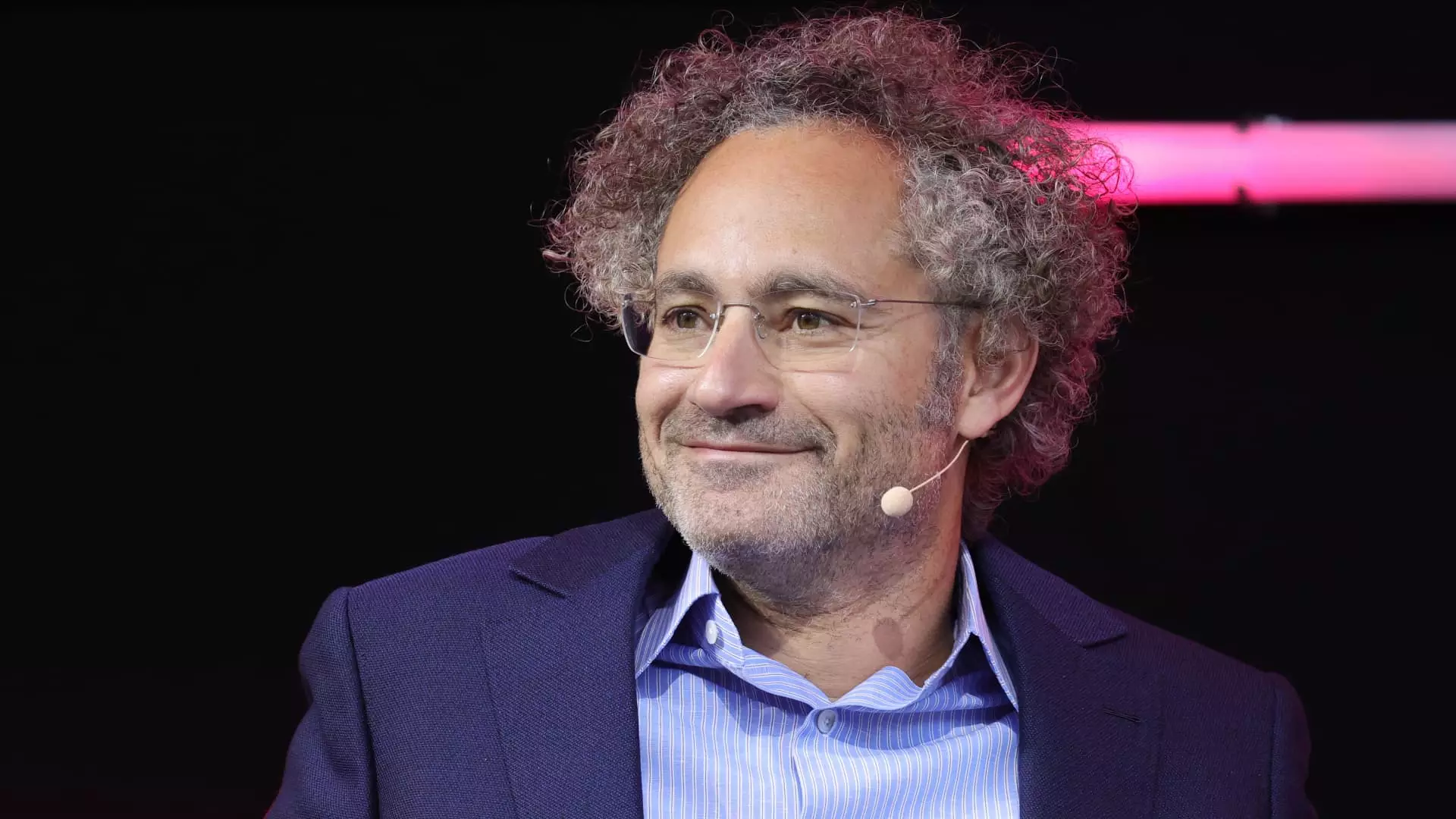In the realm of finance and technology, few collaborations raise eyebrows quite like the recent partnership between Fannie Mae—a quasi-governmental financial institution—and Palantir Technologies, a company steeped in defense and big data analytics. Announced with little fanfare but considerable implications, this partnership signals a pronounced shift towards a more invasive yet innovative approach in combating mortgage fraud. With Fannie Mae’s CEO Priscilla Almodovar asserting that the partnership aims to achieve proactive identification of fraudulent activities, one has to wonder: at what cost to privacy and ethics?
Palantir, quickly ascending in prominence under the leadership of CEO Alex Karp, boasts powerful artificial intelligence that can dissect vast datasets in a matter of seconds. While this rapid identification of fraud is undoubtedly impressive, it pricks the skin of national conversation regarding privacy—in a country already baffled by concerns over surveillance and data ethics. A technology that can swing into action faster than human investigators could ever dream raises important questions about the boundaries between security and personal freedom.
Fortunes Favor the Bold: Stock Surge Amidst Political Turbulence
While many companies languish in uncertainty, Palantir’s shares have surged by more than 140% since President Donald Trump’s election win. This meteoric rise paints a vivid picture: here is a tech player well-aligned with the current administration’s focus on both efficiency and cost-saving in government operations. It’s a win-win situation for investors, yet it could strain the already tattered fabric of ethical governance and highlight the pitfalls of intertwining politics with private enterprise.
In recent statements, the Federal Housing Financing Agency’s director, William Pulte, has emphasized that Palantir’s mortgage fraud detection capabilities could be expanded further within the realms of both Fannie Mae and its counterpart, Freddie Mac. As the two agencies find themselves under increasing scrutiny regarding their conservatorship status, the public’s faith in their ability to operate independently remains shaky. If the collaboration with Palantir succeeds, could we see similar initiatives branching out into other sectors? While cutting costs might seem tastier than pie at a bake sale, we must maintain a discerning eye on whether such strategies might come at the expense of consumers.
Home Ownership or Big Brother?: The Implicit Guarantees
In a time when homeownership should ideally be a conduit to the American Dream, President Trump has rallied behind the idea of Fannie Mae and Freddie Mac acting as vital pillars supporting aspiring homeowners. His fervor for these agencies to operate with implicit guarantees might just be the silver lining some investors crave. Yet, implicit in these promises lies the unyielding question of who finances these guarantees and at what cost to the taxpayer.
For those who may view Fannie Mae and Freddie Mac merely as traditional mortgage facilitators, it’s crucial to consider the broader implications of their ties to the government. These enterprises have languished under conservative policies for over a decade, serving as cautionary tales in the interplay of private and public sectors. While the push to bring them into the public sphere once again resonates with the capitalistic spirit, it could also further entrench mass surveillance practices under the guise of protecting the public.
Additionally, it’s worth noting the potential profit surge of stocks connected to Fannie Mae and Freddie Mac. Investors, such as Bill Ackman of Pershing Square, are not only watching the situation with bated breath but are also calling for initial public offerings (IPOs). This duality of purpose raises the issue of whether these enterprises will act in the public interest or be governed by profits and share prices alone.
The Future: Bridging Innovation and Integrity
The crux of this partnership between Fannie Mae and Palantir is not just about revolutionizing mortgage fraud detection; it speaks to a larger narrative gripping America: the balance between technological advancement and individual rights. If we are to usher in a new era of innovation, the road ahead must be paved with a commitment to preserving civil liberties alongside achieving efficiency.
As the intersection of big data meets government enterprise, consumers must remain vigilant. The world watches as two very different entities aim to forge a path towards a brighter financial future. But will this new alliance yield more transparency, or are we merely reshuffling the deck chairs on a ship that’s steadily sinking into the depths of ethical ambiguity? It’s a turbulent time, and the answers lie in how fervently we protect our values as we embrace the benefits of new technology.

